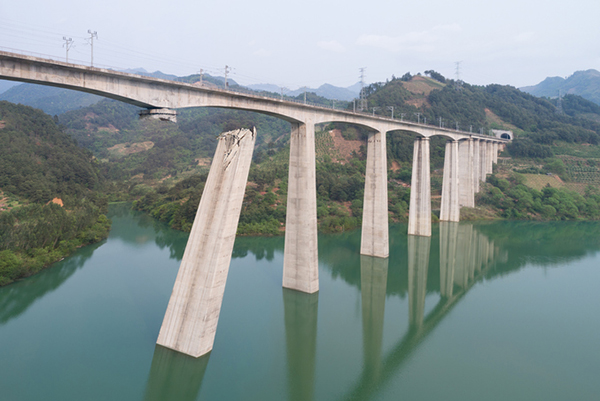The pandemic has highlighted the critical role of infrastructure to the resilience and capabilities of our nation—and we’ve done a lousy job of caring for it. The cause, at least for the highway system, is the dysfunctional funding policy.
When it comes to federal funding of American roadways, the Highway Trust Fund has had incredible success at building inter-metropolitan highways. The Highway Trust Fund was set up to build the interstate highway system—it was the largest public works project hitherto in American history, funding $114.3 billion out of $128.9 billion invested in the 46,876-mile interstate highway system that was mostly completed in 1992. Returns on this investment are difficult to assess; a 1998 study put it at $6 for every dollar invested ($9.41 in 2019 dollars, adjusted for inflation). And it paid for it all with a per-gallon fuel tax.
While an extraordinary tool for expansion during the fossil fuel era, the Highway Trust Fund has struggled to keep up with maintenance, dealing with modern issues such as environmental impacts and congestion, and has been implicated in the atrophied development of urban (intra-metropolitan) transportation. The history of minority neighborhoods being paved over or bypassed during the construction phase of our highway system will also be a topic for redress over the next few years. Since 2008, the fund has required repeated transfers from the general treasury to remain solvent, and recently the Congressional Budget Office projected its exhaustion in 2021.
The consequence of the dysfunction is evident in our roadways and bridges. The American Society of Civil Engineers (ASCE) gave the American infrastructure an overall grade of D+ with bridge infrastructure receiving a grade of C+ in 2017 while roads, aviation, and dams, received a D. Energy received a D+, and transit received a D-. Another report estimated that poor roads and bridges contribute $120.5 billion to car repair costs nationally, and a 2017 ASCE report suggested that the increase in traffic fatalities may be due to poor road infrastructure. A January 2021 ASCE report estimated an annual loss of more than $3,300 of disposable income per household due to congestion and other drags on the economy as the consequence of poor infrastructure.
What to do? A vehicle miles traveled tax would fairly apportion costs to users, but one criticism is that the technology and systems do not exist and may take years to implement. Phasing-in of carbon taxes may present an alternative that minimizes economic shocks while influencing business investments away from environmentally harmful fossil fuels. But any mechanism, even an imperfect one, would be an improvement.
Now is the time for supply chain managers and related voices to make themselves heard. Both Democrats and Republicans seek to create jobs through construction programs and improve American competitive advantage. States and municipalities have picked up part of the burden for funding at the local level, yet a desperate need exists for a national transportation strategy.
What cannot continue is business as usual—the clock is ticking, and our lives and economic well-being suffer from decades of political dithering. An 80% plan executed well is better than no plan at all. It is time to push your Congresspeople to support and pass transportation funding legislation before the next I-35 bridge collapse or pandemic strikes.
SC
MR


Latest Supply Chain News
Latest Podcast

 Explore
Explore
Business Management News
- U.S.-bound containerized import shipments are up in June and first half of 2024
- Expand supply chain metrics to cover the complete customer experience
- When disaster strikes, the supply chain becomes the key to life
- Leadership development for supply chain leaders
- A smarter approach to sustainability is vital for healthy, resilient supply chains
- When the scales tilt: Making vaccine access work for all
- More Business Management
Latest Business Management Resources

Subscribe

Supply Chain Management Review delivers the best industry content.

Editors’ Picks





